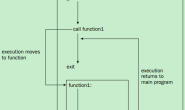以前写的二叉搜索树,其中节点是类模板,可对任何实现了比较大小的数据的插入、查找及删除操作。
并使用Traits技术实现了使用迭代器对操作数据,移植性好,效率较高。使用请注明出处,谢谢。
来源:http://blog.csdn.net/guankle/article/details/8133945
#pragma once
#include <iostream>
#include <cstdlib>
#include <queue>
using namespace std;
template <class T> class STree;
template<class T, class Ref=T&, class Ptr=T*> class STree_iterator;
template<class T, class Ref=T&, class Ptr=T*> class STree_const_iterator;
///////////////////////////////////////////////////////////////////////////////////////
//search tree NODE
template <class T>
class TNode{
friend class STree<T>; //bound friend
friend class STree_iterator<T>;
friend class STree_const_iterator<T>;
protected:
T data;
TNode<T> *left, *right, *parent;
void copy(const TNode<T> &rhs) {
//if(rhs==NULL) {cout<<"error: no source"<<endl; return;}
left=rhs.left;
right=rhs.right;
parent=rhs.parent;
data=rhs.data;
}
public:
TNode() {left=NULL, right=NULL, parent=NULL;}
TNode(const T &item, TNode<T> *lptr=NULL, TNode<T> *rptr=NULL, TNode<T> *pptr=NULL)
:data(item), left(lptr), right(rptr), parent(pptr) {}
TNode( const TNode<T> &rhs) { copy(rhs); }
TNode<T> &operator=(const TNode<T> &rhs) { copy(rhs); return *this;}
~TNode() {}
};
///////////////////////////////////////////////////////////////////////////////////////
//binary search tree declaration
template <class T>
class STree {
friend class STree_iterator<T>;
friend class STree_const_iterator<T>;
protected:
TNode<T> *root;
int size;
TNode<T> *GetNode(const T &item, TNode<T> *lptr, TNode<T> *rptr, TNode<T> *pptr); //allocate storage for the current root node
TNode<T> *copy(TNode<T> *rhs);
void DelTree(TNode<T> *root);
TNode<T> *findNode(const T& item) const; //only the type of return value is different, it seems polymorphism must be sacrificed
public:
typedef T value_type;
typedef value_type* pointer;
typedef STree_iterator<T, T&, T*> iterator;
typedef STree_const_iterator<T, T&, T*> const_interator;
STree(void);
STree(T *first, T *last);
STree(const STree<T> &rhs);
STree<T> &operator=(const STree<T> &rhs); //support
~STree(void);
iterator begin();//return the iterator of the node which should be firstly calls for
iterator end();//return the last node in the tree
int height(TNode<T> *cur) const;//calculate the height of the tree whose root is cur;
iterator find(const T& item);//find element in the tree
iterator insert(const T& item);//insert element in the tree
bool erase(const T& item);//if item exist, erase it and return true
void erase(iterator pos);/*select the minimum one (R) in the right sub tree to substitute the deleted node,
connect the right subtree of R to its parent as the left sub tree
connect the left subtree of the deleted node to R as the left subtree link the right
subtree of the deleted node to R as its right sub tree, and the substitute the
deleted node with R*/
void erase(iterator first, iterator last);
void LevelorderPrint();
bool empty() const {return root==NULL;}
int Size() const {return size;}
TNode<T> *Root() {return root;}
}; //end of declaration of STree
///////////////////////////////////////////////////////////////////////////////////////
//binary search tree implementation
//construction and destruction
template <class T>
STree<T>::STree(void){
root=NULL;
size=0;
}
template <class T>
STree<T>::STree(T *first, T *last) {
root=NULL;
size=0;
while(first!=last) {
insert(*first);
++first;
}
}
template <class T>
STree<T>::STree(const STree<T> &rhs) {
root=copy( rhs.Root() );
size=rhs.Size();
}
template <class T>
STree<T> &STree<T>::operator=(const STree<T> &rhs){
if(this==rhs) return this;
DelTree(root);
root=copy(rhs.Root());
size=rhs.Size();
return this;
}
template <class T>
STree<T>::~STree(void){
DelTree(root);
}
//private routines
template <class T>
TNode<T> *STree<T>::GetNode(const T &item, TNode<T> *lptr, TNode<T> *rptr, TNode<T> *pptr){
TNode<T> *newnode=new TNode<T>(item, lptr, rptr, pptr);
if(newnode==NULL) {cerr<<"allocate storage for new node failed!"<<endl; exit(0);}
/*throw referenceError
("allocate storage for new node failed!");*/
return newnode;
}
template <class T>
TNode<T> *STree<T>::copy(TNode<T> *rhs){
TNode<T> *lptr, *rptr, *newnode;
if(rhs==NULL) return NULL;
lptr=copy(rhs->left);
rptr=copy(rhs->right);//recurisively copy
newnode=GetNode(rhs->data, lptr, rptr, NULL);
if(lptr!=NULL) lptr->parent=newnode;
if(rptr!=NULL) rptr->parent=newnode;
return newnode;//return the root of the current tree
}
template <class T>
void STree<T>::DelTree(TNode<T> *_root) {
if(_root!=NULL){
DelTree(_root->left);
DelTree(_root->right);
delete _root;
}
}
template <class T>
TNode<T> *STree<T>::findNode(const T& item) const {
TNode<T> *cur=root;
while(cur!=NULL) {
if(item==cur->data) return cur;
else if(item<cur->data) cur=cur->left;
else cur=cur->right;
}
return cur;
}
//interface
template <class T>
int STree<T>::height(TNode<T> *cur) const {
int r_depth, l_depth, depth;
if(cur==NULL) depth=-1;
else {
r_depth=height(cur->right);
l_depth=height(cur->left);
depth=1+(r_depth>l_depth?r_depth:l_depth);
}
return depth;
}
template <class T>
typename STree<T>::iterator STree<T>::find(const T& item){
TNode<T> *cur;
cur=findNode(item);
if(cur!=NULL) return STree<T>::iterator(cur, this);
else return this->end();
}
template <class T>
typename STree<T>::iterator STree<T>::insert(const T& item) {
TNode<T> *cur=root, *par=NULL, *newnode;
while(cur!=NULL) {
par=cur;
if(item==cur->data) return STree<T>::iterator(cur, this);
else if(item<cur->data) cur=cur->left;
else cur=cur->right;
}
newnode=GetNode(item, NULL, NULL, par);
if(par==NULL) root=newnode;
else if(item<par->data) par->left=newnode;
else par->right=newnode;
++size;
return STree<T>::iterator(newnode, this);
}
template <class T>
bool STree<T>::erase(const T& item) {
STree<T>::iterator pos=find(item);
if( pos!=end() ) erase(pos);
return pos!= end();
}
template <class T>
void STree<T>::erase(typename STree<T>::iterator pos) {
TNode<T> *del=pos.pn;
if(del==NULL) return;
TNode<T> *par=del->parent, *subs;
if(del->left==NULL || del->right==NULL) {
if(del->left==NULL) subs=del->right;
else subs=del->left;
if(subs != NULL) subs->parent=par;
}
else {
subs=del->right;
TNode<T> *temp=del;
while(subs->left!=NULL) {
temp=subs;
subs=subs->left;
}
if(temp==del) {
subs->left=del->left;
subs->parent=par;
subs->left->parent=subs;
}
else {
temp->left=subs->right; //reconstructe left tree of upstream node
if(subs->right!=NULL) subs->right->parent=temp;
subs->left=del->left;//reconstructe left tree of substitute
subs->left->parent=subs;
subs->right=del->right;//reconstructe right tree of substitute
subs->right->parent=subs;
subs->parent=par;//modify parent pointer of substitute
}
}
if(par==NULL) root=subs;
else if(par->left==del) par->left=subs;
else par->right=subs;
delete del;
--size;
}
template <class T>
void STree<T>::erase(typename STree<T>::iterator first, typename STree<T>::iterator last){
STree<T>::iterator iter=first;
while(iter!=last) {
erase(iter);
++iter;
}
}
template <class T>
void STree<T>::LevelorderPrint() {
queue< TNode<T> > parQ;
queue< TNode<T> > chdQ;
TNode<T> *cur=new TNode<T>;
parQ.push(*root);
while(!parQ.empty()) {
do{
*cur=parQ.front();
parQ.pop();
cout<<cur->data<<ends;
if(cur->left!=NULL) chdQ.push(*(cur->left) );
if(cur->right!=NULL) chdQ.push(*(cur->right) );
} while(!parQ.empty());
cout<<endl;
parQ=chdQ;
queue< TNode<T> > empty;
swap(chdQ, empty);
}
delete cur;
cur=NULL;
}
//iterators
template <class T>
typename STree<T>::iterator STree<T>::begin(){
TNode<T> *cur=root;
if(cur!=NULL)
while(cur->left!=NULL)
cur=cur->left;
return STree<T>::iterator(cur, this);//this will point to the tree who call the function
}
template <class T>
typename STree<T>::iterator STree<T>::end(){//a null pointer will be returned, represent the last node
return STree<T>::iterator(NULL, this);
}
///////////////////////////////////////////////////////////////////////////////////////
//binary search tree iterators
template<class T, class Ref, class Ptr>
class STree_iterator {//nested iterator declaration
friend class STree<T>;
public:
typedef STree_iterator<T, T&, T*> iterator;
typedef STree_iterator<T, Ref, Ptr> self;
typedef std::bidirectional_iterator_tag iterator_category;
typedef T value_type;
typedef Ref reference;
typedef Ptr pointer;
typedef ptrdiff_t difference_type;
public:
//constructors
STree_iterator(){
pn=NULL;
tree=NULL;
}
STree_iterator(const STree_iterator &rhs) {//copy construction
pn=rhs.pn;
tree=rhs.tree;
}
//operators
bool operator==(const STree_iterator &rhs) const {return pn == rhs.pn;}
bool operator!=(const STree_iterator &rhs) const {return pn != rhs.pn;}
reference operator*() const{
if(pn==NULL) {cerr<<"allocate storage for new node failed!"<<endl; exit(0);}
/*throw referenceError
("allocate storage for new node failed!");*/
return pn->data;
}
pointer operator->() const { return &( operator*() ); }
self &operator++() { //move to the next node following inorder traversal
TNode<T> *p;
if(pn==NULL) {//pn point to the end, next should be the first one in the tree
pn=tree->root;
if(pn==NULL) { cerr<<"move on a empty tree!"<<endl; exit(0);}
/*throw referenceError
("allocate storage for new node failed!");*/
while(pn->left!=NULL) pn=pn->left;
}
else if(pn->right != NULL) {//return the last node of the right subtree
pn=pn->right;
while(pn->left!=NULL) pn=pn->left;
}
else {//left subtree have been traversed and no right subtree, move to the parent
p=pn->parent;
while(p!=NULL && pn==p->right) {
pn=p;
p=p->parent;
}
pn=p;
}
return *this;//prefix, return current iterator (++iter)
}
self operator++(int) {//suffix iter++
self temp(pn, tree);
++(*this);//invoke ++iter;
return temp;//return a object but the reference
}
self &operator--() { //move to the previous node following inorder traversal
TNode<T> *p;
if(pn==NULL) {//pn point to the end, next should be the last(not null) one in the tree
pn=tree->root;
if(pn==NULL) {cerr<<"move on a empty tree!"<<endl; exit(0);}
/*throw referenceError
("allocate storage for new node failed!");*/
while(pn->right!=NULL) pn=pn->right;
}
else if(pn->left != NULL) {//return the last node of the left subtree
pn=pn->left;
while(pn->right!=NULL) pn=pn->right;
}
else {//left subtree have been traversed and no left subtree, move to the parent
p=pn->parent;
while(p!=NULL && pn==p->left) {
pn=p;
p=p->parent;
}
pn=p;
}
return *this;
}
self operator--(int) {
self temp(pn, tree);
--(*this);//invoke --iter;
return temp;//return a object but the reference
}
private:
TNode<T> *pn;
STree<T> *tree;
STree_iterator(TNode<T> *p, STree<T> *t):pn(p), tree(t) {}
};
template<class T, class Ref, class Ptr>
class STree_const_iterator{
friend class STree<T>;
public:
typedef STree_const_iterator<T, T&, T*> iterator;
typedef STree_const_iterator<T, Ref, Ptr> self;
typedef std::bidirectional_iterator_tag iterator_category;
typedef T value_type;
typedef Ref reference;
typedef Ptr pointer;
typedef ptrdiff_t difference_type;
public:
STree_const_iterator(){
pn=NULL;
tree=NULL;
}
STree_const_iterator(const STree_const_iterator &rhs){//copy construction
pn=rhs.pn;
tree=rhs.tree;
}
STree_const_iterator(const iterator &rhs){//copy construction
pn=rhs.pn;
tree=rhs.tree;
}
bool operator==(const STree_const_iterator &rhs) const {return pn == rhs.pn;}
bool operator!=(const STree_const_iterator &rhs) const {return pn != rhs.pn;}
const T &operator*() const {
if(pn==NULL) { cerr<<"STree STree_const_iterator operator*(): NULL reference"<<endl; exit(0); }
/*throw referenceError
("STree STree_const_iterator operator*(): NULL reference");*/
return pn->data;
}
const pointer operator->() const { return &( operator*() ); }
STree_const_iterator &operator++() { //move to the next node following inorder traversal
TNode<T> *p;
if(pn==NULL) {//pn point to the end, next should be the first one in the tree
pn=tree->root;
if(pn==NULL) { cerr<<"STree STree_const_iterator operator++(): tree empty"<<endl; exit(0); }
/*throw underflowError
("STree STree_const_iterator operator++(): tree empty");*/
while(pn->left!=NULL) pn=pn->left;
}
else if(pn->right != NULL) {//return the last node of the right subtree
pn=pn->right;
while(pn->left!=NULL) pn=pn->left;
}
else {//left subtree have been traversed and no right subtree, move to the parent
p=pn->parent;
while(p!=NULL && pn==p->right) {
pn=p;
p=p->parent;
}
pn=p;
}
return *this;//prefix, return current iterator (++iter)
}
STree_const_iterator operator++(int) {//suffix iter++
STree<T>::STree_const_iterator temp(pn, tree);
++(*this);//invoke ++iter;
return temp;//return a object but the reference
}
STree_const_iterator &operator--() { //move to the previous node following inorder traversal
TNode<T> *p;
if(pn==NULL) {//pn point to the end, next should be the last(not null) one in the tree
pn=tree->root;
if(pn==NULL)
throw underflowError
("STree STree_const_iterator operator++(): tree empty");
while(pn->right!=NULL) pn=pn->right;
}
else if(pn->left != NULL) {//return the last node of the left subtree
pn=pn->left;
while(pn->right!=NULL) pn=pn->right;
}
else {//left subtree have been traversed and no left subtree, move to the parent
p=pn->parent;
while(p!=NULL && pn==p->left) {
pn=p;
p=p->parent;
}
pn=p;
}
return *this;
}
STree_const_iterator operator--(int) {
STree_const_iterator temp(pn, tree);
--(*this);//invoke --iter;
return temp;//return a object but the reference
}
private:
const TNode<T> *pn;
const STree<T> *tree;
STree_const_iterator(const TNode<T> *p, const STree<T> *t):pn(p), tree(t) {}
};




